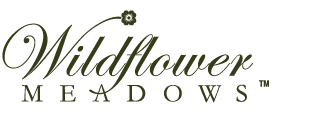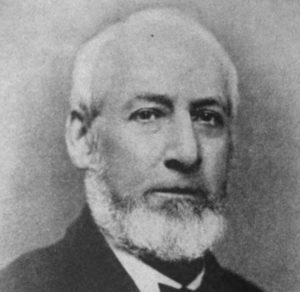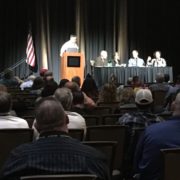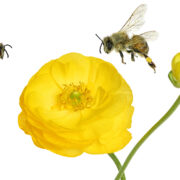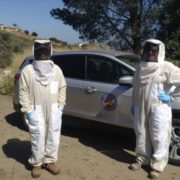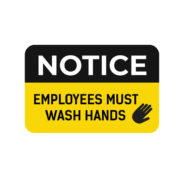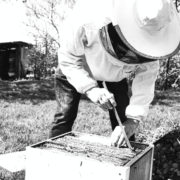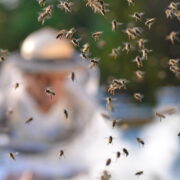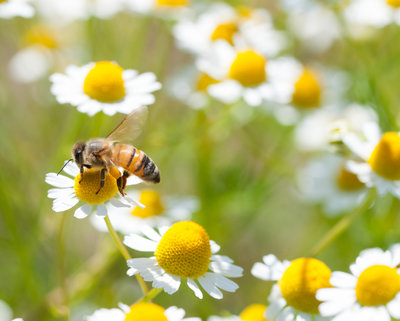The Father Of American Practical Beekeeping
As Father’s Day approaches, we are inclined to stop and give credit to our fathers for all that they have provided before us. As beekeepers, we too have “fathers” that came before us, and paved the way for our world today as 21st century beekeepers. The most notable father figure in beekeeping is almost certainly, L.L. Langstroth, who, as the discoverer of both the principal of bee space and the Langstroth hive, is literally called “The Father of American Beekeeping.”
Less well known, however, but possibly even greater a legend in American beekeeping, is Moses Quinby, another beekeeping giant commonly referred to as “The Father of Practical American Beekeeping.” It may sound like these two were in competition for ultimate legendary beekeeper status, but they were in fact contemporaries of each other, and as the story goes, were both good friends and colleagues.
Moses Quinby started his career as a woodworker, but became interested in beekeeping at a young age. This was a good thing for the beekeeping industry, because here is what he accomplished in his beekeeping career, which spanned the 1800’s:
- He invented the smoker
- He pioneered the concept of supering
- He invented the centrifuge honey extractor
- He became America’s first commercial beekeeper, pioneering beekeeping as a profession
- He built his hive numbers to 1,200 (before the invention of the automobile)
- He was one of the first beekeepers to commercially raise queens
- He was largely responsible for promoting Italian queen stock in the United States
- He pioneered the earliest treatments for American Foul Brood
This was Moses Quinby’s beekeeping career. Wow!
Of course, these accomplishments in and of themselves surely entitle Quinby to his legendary status. But what really made Quinby a father, and “The Father of Practical Beekeeping”, was not only his stunning list of inventions and achievements, but his willingness to truly be a mentor to others and to share his knowledge and expertise so freely to all aspiring beekeepers.
Moses Quinby did not believe in patents or copyrights; he believed in sharing. What he invented, he wanted to share freely with his fellow beekeepers. He was not a selfish man, as none of his inventions were patented, nor his writings copyrighted. Later in his life, in the 1870’s, Quinby communicated his, by then, substantial knowledge by writing articles for the American Bee Journal and other outdoor magazines. He also wrote books, which he never copyrighted, just so that he could impart his extensive knowledge. He would then also volunteer regular demonstrations to aspiring beekeepers, freely explaining principals and answering questions. He thus became a father figure to all beekeepers, offering his free and expansive advice whenever and wherever needed. Beekeepers looked up to him, and he did not hesitate to counsel them in return.
This is a worthy father, and worthy role model; one who more than lived up the high ideals that we seek in our paths as modern day beekeepers. Happy Father’s Day!
